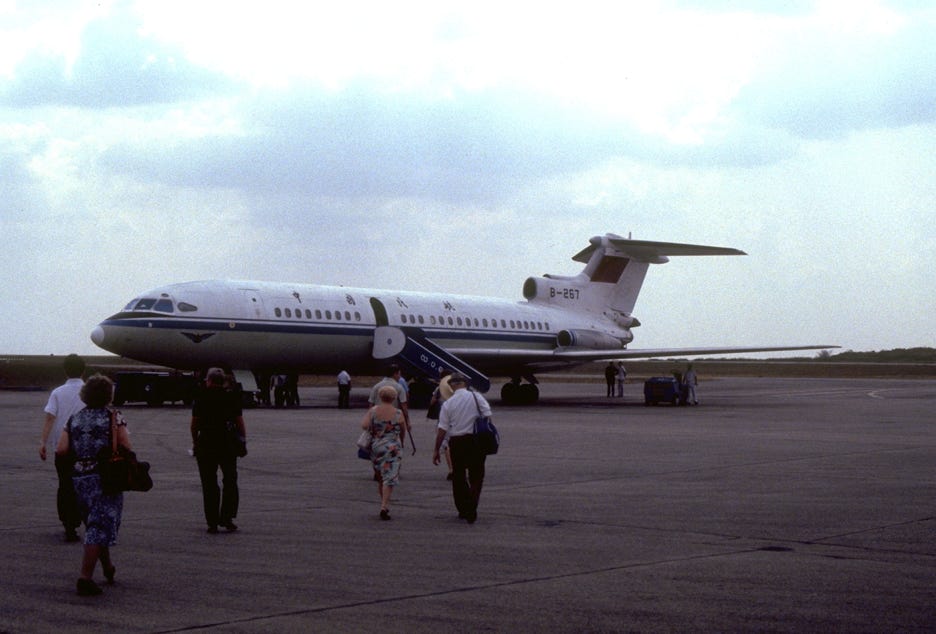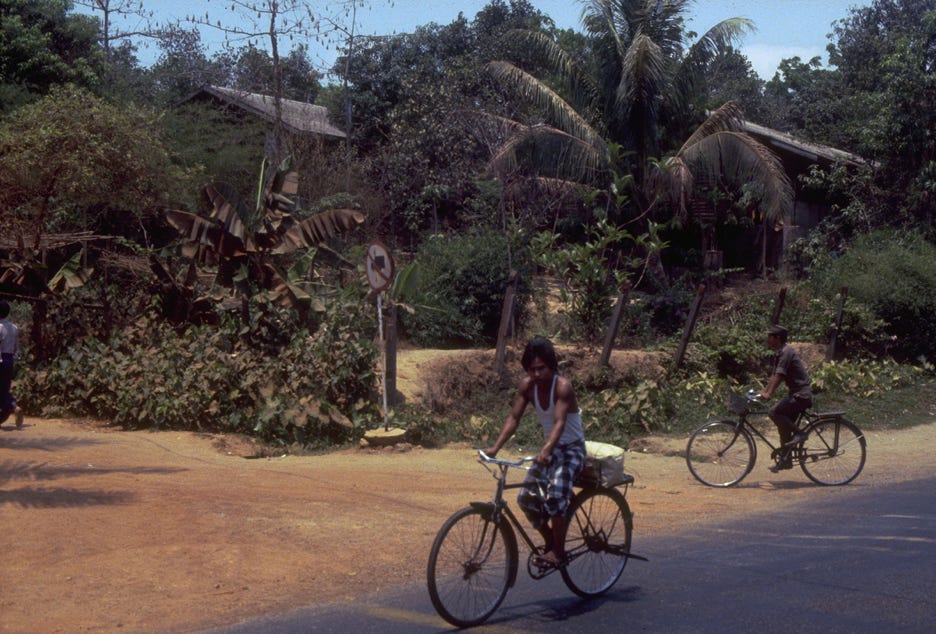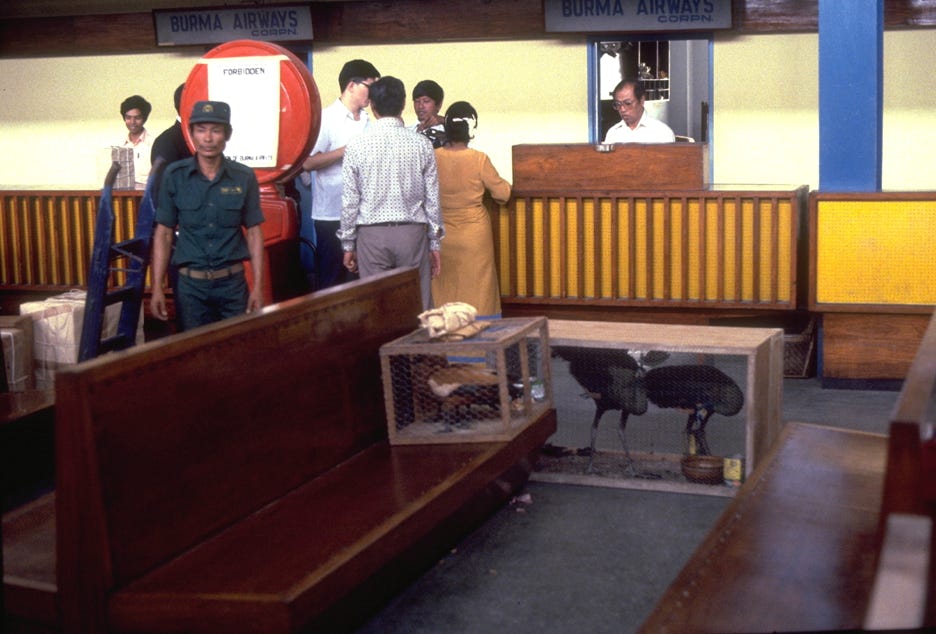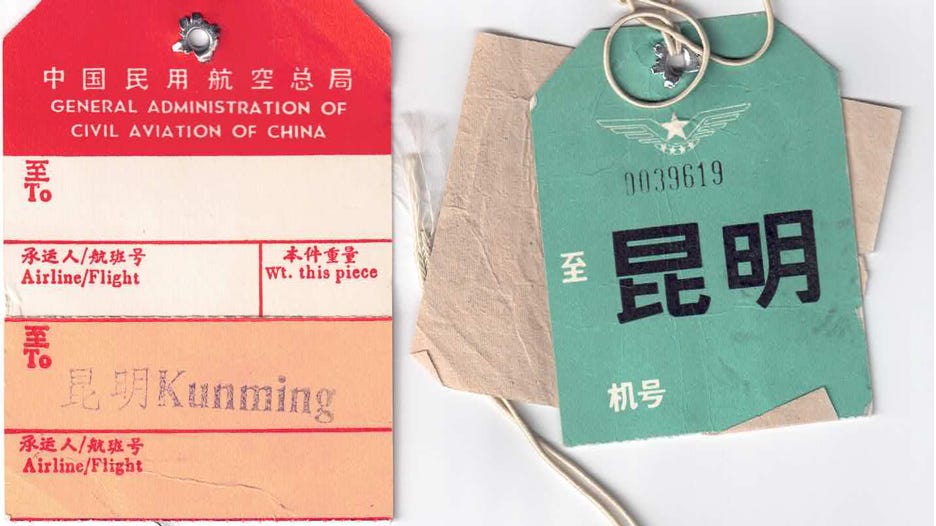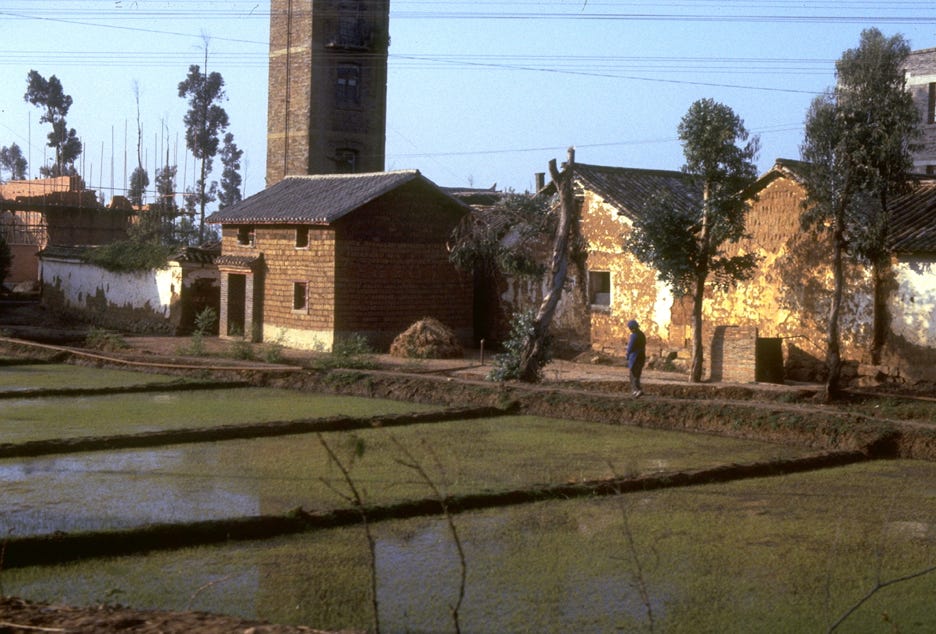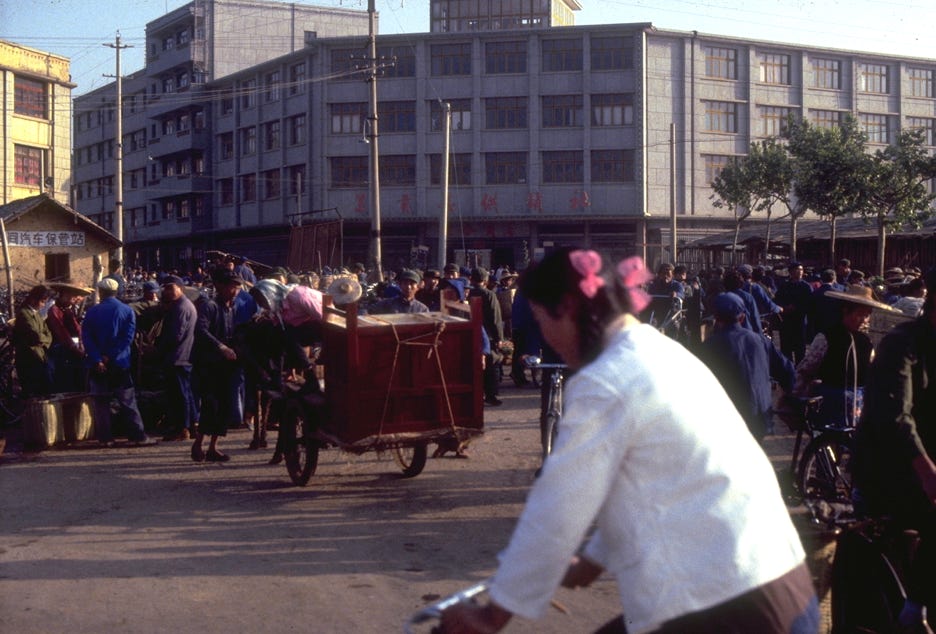

We had an early lunch at the Inya lake Hotel of 20cm long prawns and tropical fruits before heading off to the airport. The process of leaving Burma was thankfully much smoother than our arrival, and we had a very pleasant one and a half flight on a British-made Hawker-Siddeley Trident three-engined jet operated by China’s only airline, CAAC (Civil Aviation Administration of China). The plane was registered B-267. Flying over the eastern extremity of the Himalayas we saw areas of shifting cultivation of groups such as the Miao, with narrow ridge-top pathways and massive soil erosion in the over-cultivated areas. The air was very misty though.
Just as Rangoon seemed to be in a different world from Bangkok, which in turn was a world away from Sydney, Kunming is entirely different. Flying into Kunming, the red colour of the soil is striking, and the layout of the collective farms is very regular with their irrigated channels and neatly ordered fields. Kunming Airport doubles as an air force base, and the line-up of MiG-19 jet fighters was very obvious.
Our group entered China on a group visa, which required us to line up in specific order. Once this was achieved, entry was quick and painless (especially compared with the experience in Rangoon a few days ago), and we even managed to persuade the border official to stamp our passports, which was not strictly the procedure.
I realise this is just a poorly informed initial impression, but I’m finding the people in China so far to be better natured, more vivacious, easier going and more ready with a smile than the Burmese I met in Rangoon. The relaxed airport atmosphere was a joy to experience!!! After a minimum of formalities we were out and walking in China. It was an immediate feeling of elation – hard to believe I was actually standing, living and breathing in one of the world’s most isolated and secretive nations.
Two things impressed me immediately on the drive into Kunming city from the airport. First, the whole city is absolutely spotlessly clean. In contrast with both Bangkok and Rangoon, there is no rubbish anywhere, and even the streets look dustless – I know it sounds extreme, but the cleanliness, orderliness and tidiness must be seen to be believed. The other thing that impresses me is that every square metre of ground is being put to some productive use. There are even vegetables being grown in the median strips along the middle of some main roads.
Other initial points that are worthy of note are the lack of private cars (and therefore smog), the abundance of trees (every street we have driven along so far has been lined with trees at intervals of only a few metres), and the lack of noise – Kunming is incredibly serene after Bangkok, and even Rangoon.
Although it has about one million people, Kunming has the air of a large country town. The city is highly concentrated with high-rise development of 5-6 storeys being the norm for residential use. The pace of building construction, or rather the abundance of it, is also noteworthy – when they say they are developing, building and modernising, they mean it.
The hotel where we are staying – the aptly named Kunming Hotel – was only opened a week ago, or at least that is so for the 14-storey new wing, where we are staying on the 12th floor. The hotel is easily the best we have stayed in, even better than the so-called international standard in Bangkok. It even has vents to circulate the air in the bathroom when the shower is being used, a dish for washing clothes as well as the usual thermos of extremely hot water to use for making green tea (which is also provided).
Our first dinner tonight was a great banquet of local food – typical (so I’m told) of the standards to come. After dinner, we watched a compulsory 90 minute video of the scenic wonders and culture of Yunnan province, of which Kunming is the capital.
Having arrived in China, we have now received our final itinerary for travels in China. Although they are trying to fix a few problems, like the Wuhan to Peking train trip, they expect it will remain fairly fixed.

